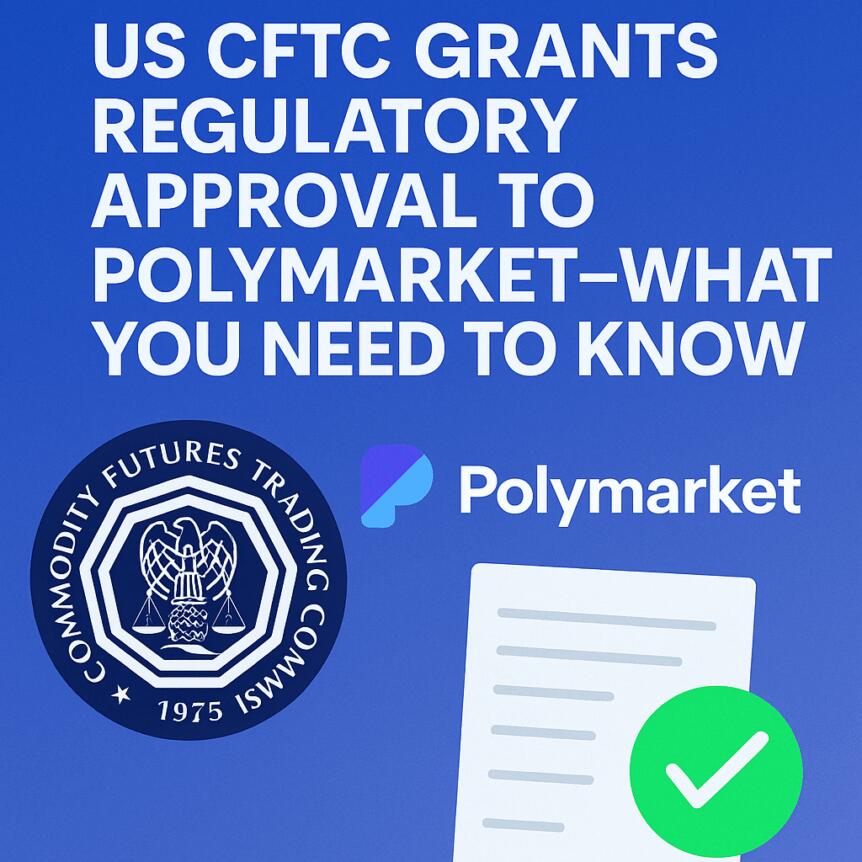Polymarket Gains Regulatory Approval to Operate as a Fully Compliant US Prediction Platform
Prediction platform Polymarket has secured regulatory clearance from the U.S. Commodity Futures Trading Commission (CFTC) to operate an intermediated trading platform, marking a significant milestone in its compliance journey. The approval allows Polymarket to expand its services within the United States, onboarding brokerages and individual traders under the oversight of federal regulations.
Key Takeaways
- Polymarket received an Amended Order of Designation from the CFTC, enabling it to operate as a federally regulated exchange.
- The platform now adheres to full regulatory requirements, including direct onboarding of brokers and traders in the US.
- The approval follows a prior investigation by US authorities into whether the platform accepted trades from American users.
- The move reflects a broader shift towards regulatory clarity and compliance within the crypto and prediction markets sector.
Tickers mentioned: Not applicable
Sentiment: Positive
Price impact: Neutral. Regulatory approval enhances legitimacy but hasn’t yet influenced market prices.
Trading idea (Not Financial Advice): Hold — Regulatory clarity could foster longer-term growth in the prediction markets sector.
Market context: As regulators seek to bring greater oversight to digital assets, Polymarket’s approval exemplifies ongoing efforts to legitimize blockchain-based prediction platforms.
Major Developments in Polymarket’s Regulatory Trajectory
The approval comes approximately five months after US agencies, including the CFTC and the Department of Justice, concluded their investigation into Polymarket’s operations concerning U.S.-based users. During the investigation, the FBI reportedly raided the home of CEO Shayne Coplan, seizing electronic devices as part of the inquiry. Despite these challenges, the CFTC’s decision signals a move toward legitimizing the platform’s operations under U.S. law.
Polymarket is now subjected to the same oversight and regulatory requirements as traditional exchanges, fostering greater transparency and legal compliance. The development coincides with ongoing legislative efforts, such as a market structure bill progressing through Congress that could further expand the CFTC’s authority over digital assets and trading platforms.
Shifting Leadership at the CFTC
The regulatory announcement was made under acting Chair Caroline Pham’s leadership, amid anticipation of the Senate’s upcoming vote on Michael Selig, an SEC official, to become the new chair of the CFTC. The Senate Agriculture Committee recently advanced Selig’s nomination along party lines. Even if confirmed, the commission will remain short-staffed, with four vacant commissioner seats, as President Donald Trump has yet to nominate replacements.
This leadership transition comes at a pivotal time for crypto regulation, highlighting the evolving landscape and the push for more definitive oversight structures for digital assets and associated platforms.







